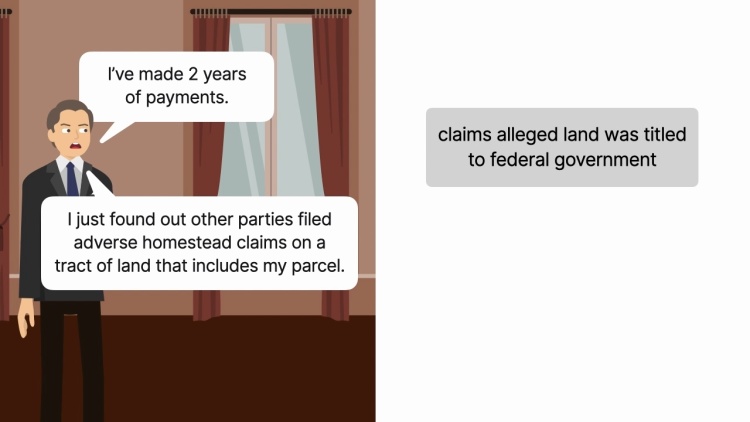Luette v. Bank of Italy Nat. Trust & Savings Ass'n
United States Court of Appeals for the Ninth Circuit
42 F.2d 9 (1930)

- Written by Richard Lavigne, JD
Facts
Luette (plaintiff) entered into a contract to purchase one quarter of an acre of real property from Bank of Italy (defendant). The contract required Luette to make a down payment followed by monthly installments. The contract required Bank of Italy to convey title upon payment of the full balance in May 1933. Luette discovered that homestead claims had been filed against a tract of land that included the lot Luette sought to purchase. The tract subject to claims consisted of more than 16,000 acres. After learning about the homestead claims, Luette demanded that Bank of Italy produce its title to the property and offered to pay the full remaining contract balance upon production of title. Bank of Italy declined to produce title. Under the theory that Bank of Italy’s title was in question as a result of the pending homestead claims, Luette filed suit seeking an injunction preventing Bank of Italy from terminating the purchase contract and demanding relief from the obligation to make further payments until the homestead claims had been resolved. In the alternative, Luette sought rescission of the contract and a refund of payments tendered. The trial court dismissed Luette’s complaint. Luette appealed.
Rule of Law
Issue
Holding and Reasoning (Kerrigan, J.)
What to do next…
Here's why 899,000 law students have relied on our case briefs:
- Written by law professors and practitioners, not other law students. 47,000 briefs, keyed to 994 casebooks. Top-notch customer support.
- The right amount of information, includes the facts, issues, rule of law, holding and reasoning, and any concurrences and dissents.
- Access in your classes, works on your mobile and tablet. Massive library of related video lessons and high quality multiple-choice questions.
- Easy to use, uniform format for every case brief. Written in plain English, not in legalese. Our briefs summarize and simplify; they don’t just repeat the court’s language.





